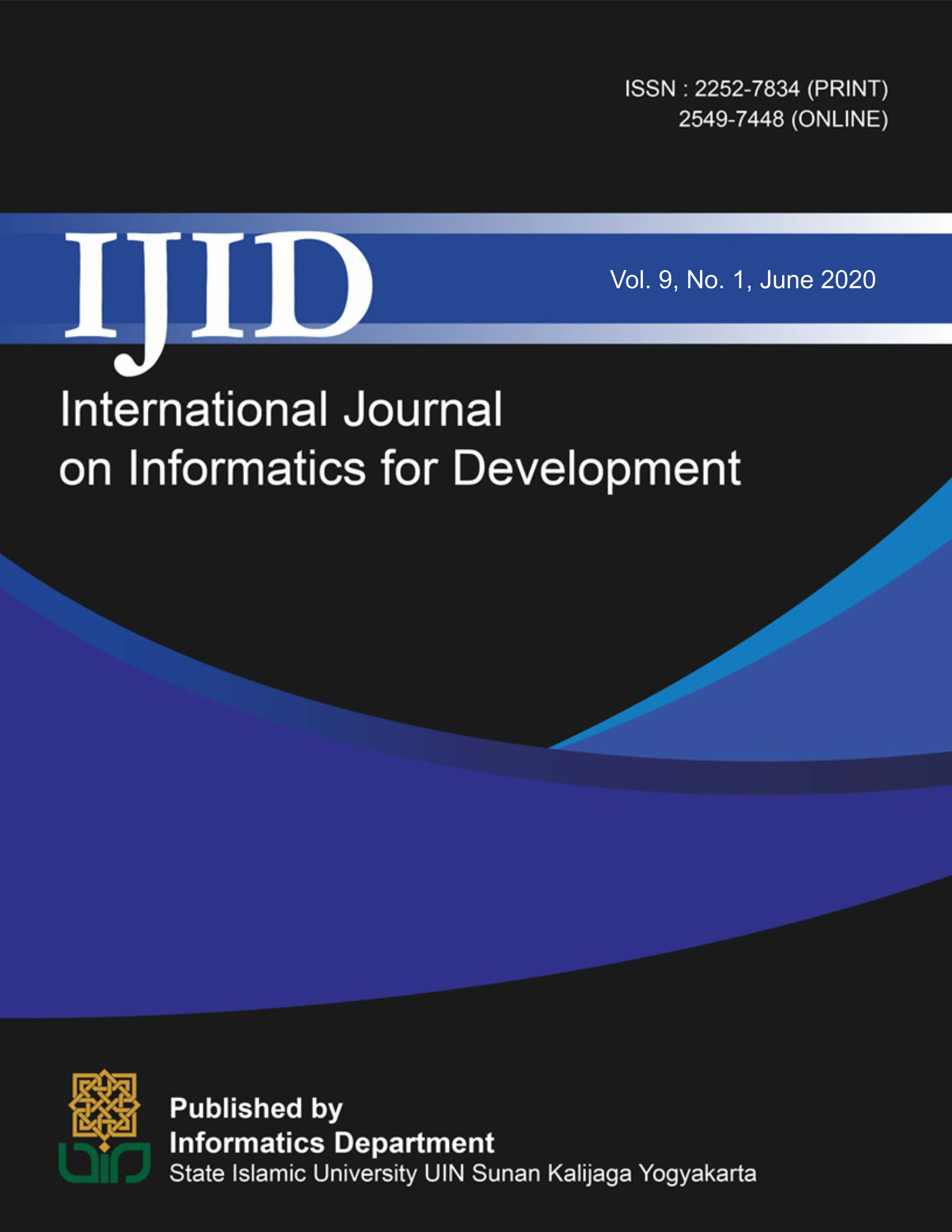Abstract
The phenomenon of the rapid transfer of learning to online systems, such as e-Learning, has occurred massively. Institutions must ensure that student assessments run well. The characteristics of learning in e-Learning require an appropriate assessment method. The fuzzy logic method can be an option. Research shows that fuzzy logic is capable of providing flexible and objective performance evaluation. Fuzzy logic is a method that can overcome the uncertainty of transparency and objectivity of student assessments. In general, fuzzy logic applications are carried out by standards. Modification is an attempt to reveal the flexibility and to optimize the use of fuzzy logic. This study presents an analysis of fuzzy logic modification for the assessment of Algorithm and Data Structures courses held in e-Learning. These modifications include (i) modification of the parameter score with score compatibility, (ii) consequent modification of the fuzzy rules and (iii) modification of the implication process. The study results show that although the use of fuzzy logic requires more complicated procedures and tools, it can present various kinds of assessment as an option for educators to assess students in e-Learning.References
C. Li and F. Lalani, “The rise of online learning during the COVID-19 pandemic | World Economic Forum,” weforum.org, 2020. [Online]. Available: https://www.weforum.org/agenda/2020/04/coronavirus-education-global-covid19-online-digital-learning/. [Accessed: 30-Jun-2020].
J. L. Moore, C. Dickson-Deane, and K. Galyen, “E-Learning, online learning, and distance learning environments: Are they the same?,” Internet High. Educ., vol. 14, no. 2, pp. 129–135, 2011.
M. S. Ivanova, “Fuzzy set theory and fuzzy logic for activities automation in engineering education,” 2019 28th Int. Sci. Conf. Electron. 2019 - Proc., 2019.
N. Amelia, A. G. Abdullah, and Y. Mulyadi, “Meta-analysis of student performance assessment using fuzzy logic,” Indones. J. Sci. Technol., vol. 4, no. 1, pp. 74–88, 2019.
T. Y. Fitra, “Aplikasi Sistem Fuzzy untuk Prediksi Harga Crude Palm Oil (CPO),” Universitas Negeri Yogyakarta, 2014.
R. Wardoyo and S. Mulyana, “Kecerdasan Buatan – Lab Sistem Cerdas – DIKE FMIPA UGM,” mipa.ugm.ac.id, 2020. [Online]. Available: https://sistemcerdas.mipa.ugm.ac.id/. [Accessed: 04-Jul-2020].
G. Gokmen, T. Ç. Akinci, M. Tektaş, N. Onat, G. Kocyigit, and N. Tektaş, “Evaluation of student performance in laboratory applications using fuzzy logic,” Procedia - Soc. Behav. Sci., vol. 2, no. 2, pp. 902–909, 2010.
G. Agarwal, S. Gupta, and A. Agrawal, “Evaluation of Student Performance for Future Perspective in terms of Higher Studies using Fuzzy logic Approach,” Int. J. Comput. Appl., vol. 181, no. 50, pp. 9–14, 2019.
M. Akkur and D. H. Rao, “Fuzzy Logic: A Tool for Evaluation of Students’ Performance,” Int. J. Sci. Eng. Res., vol. 9, no. 10, 2018.
Z. Yildiz and A. F. Baba, “Evaluation of student performance in laboratory applications using fuzzy decision support system model,” IEEE Glob. Eng. Educ. Conf. EDUCON, no. April, pp. 1023–1027, 2014.
I. Hadjar, Dasar-dasar Statistika untuk Ilmu Pendidikan. Semarang: Pustaka Zaman, 2014.
J. Azimjonov, “Evaluation of Distance Learning Students Performance Using,” no. October, 2016.
R. S. Yadav and V. P. Singh, “Modeling Academic Performance Evaluation Using Soft Computing Techniques : A Fuzzy Logic Approach,” Int. J. Comput. Sci. Eng., vol. 3, no. 2, pp. 676–686, 2011.
J. W. G. Putra, Pengenalan Konsep Pembelajaran Mesin dan Deep Learning, 1.3. 2019.
L.-X. Wang, “A Course in Fuzzy Systems and Control.” 1997.
A. SaberiNasr, M. Rezaei, and M. Dashti Barmaki, “Analysis of Groundwater Quality using Mamdani Fuzzy Inference System (MFIS) in Yazd province, Iran,” Int. J. Comput. Appl., vol. 59, no. 7, pp. 45–53, 2012.
“Grading Rubrics: Sample Scales | Sheridan Center | Brown University.” [Online]. Available: https://www.brown.edu/sheridan/teaching-learning-resources/teaching-resources/course-design/classroom-assessment/grading-criteria/rubrics-scales. [Accessed: 11-Aug-2020].
H. Xu and R. Vilanova, “PI and fuzzy control for P-removal in wastewater treatment plant,” Int. J. Comput. Commun. Control, vol. 10, no. 6, pp. 936–951, 2015.
K. Alfath and F. F. Raharjo, “Teknik Pengolahan Hasil Asesmen: Teknik Pengolahan Dengan Menggunakan Pendekatan Acuan Norma (PAN) dan Pendekatan Acuan Patokan (PAP),” J. Komun. dan Pendidik. Islam, vol. 8, p. 26, 2019.
R. Wardoyo and L. N. Afifa, “Fuzzy Method to Determine the Feasibility of Domestic Water Quality,” vol. 7, no. 4, pp. 406–410, 2018.

IJID (International Journal on Informatics for Development) is licensed under a Creative Commons Attribution-NonCommercial-NoDerivatives 4.0 International License
